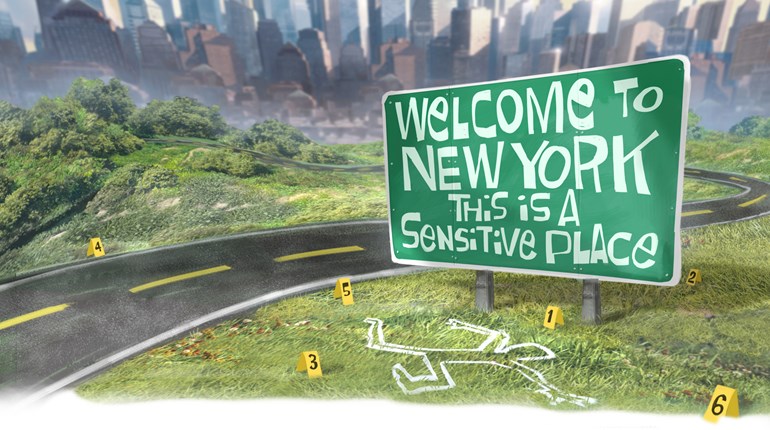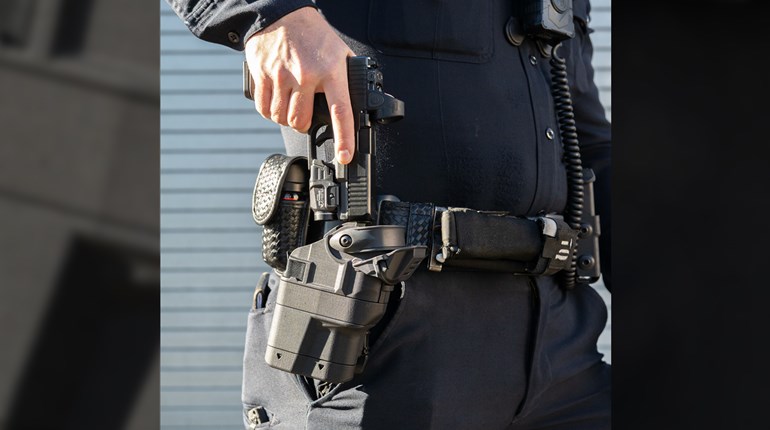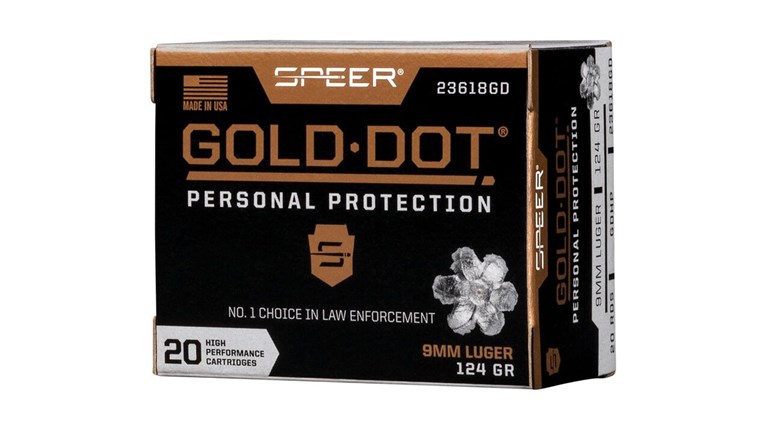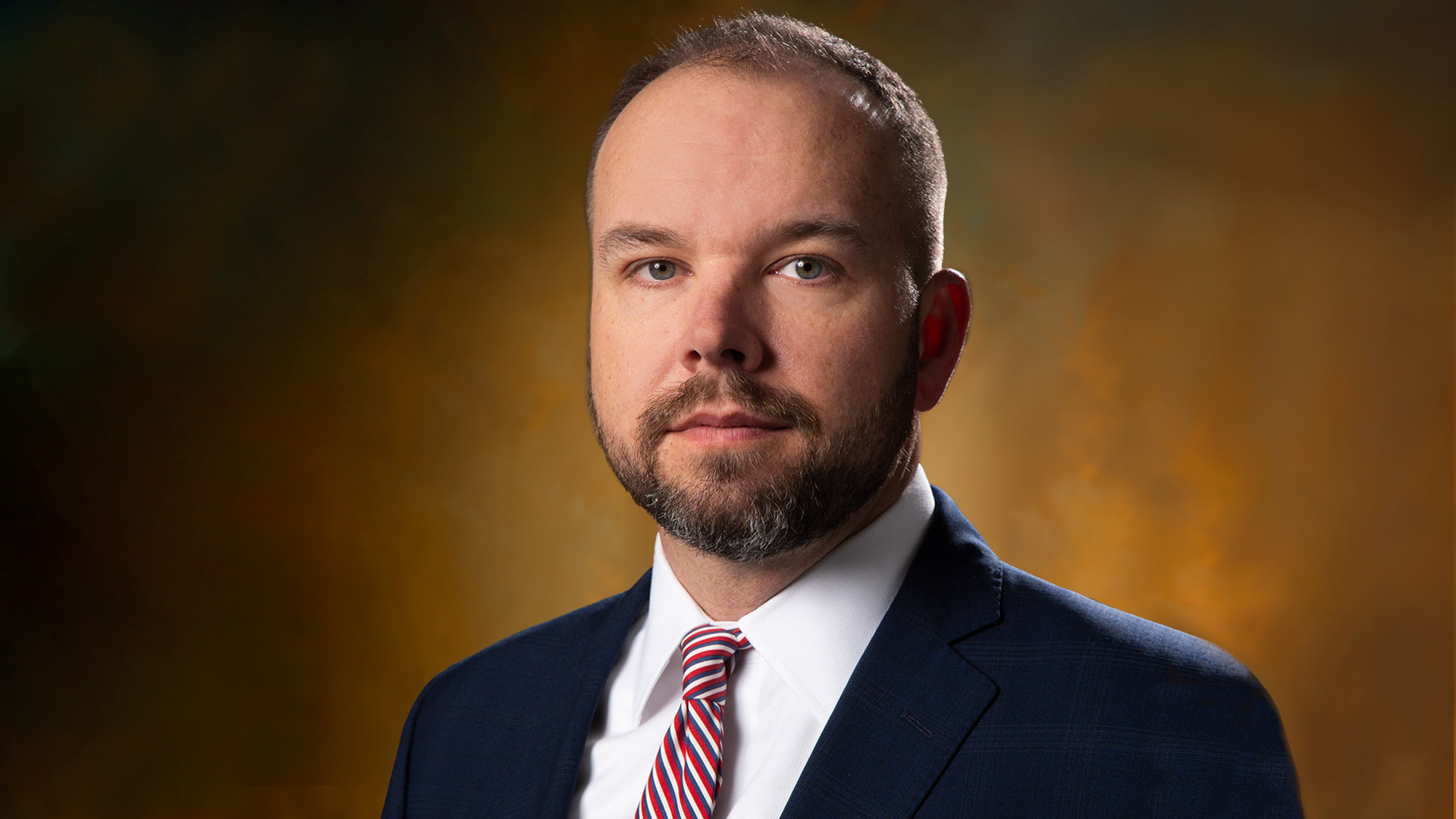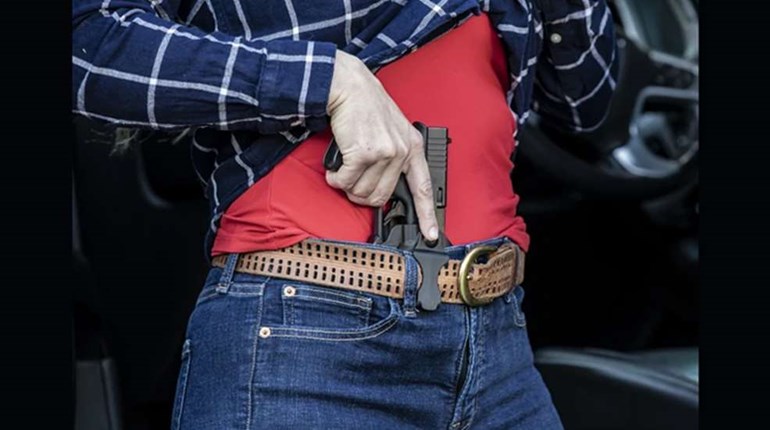
How many times have you seen silent, solemn police backing politicians at press conferences?
Elected officials love to borrow cop cred to boost their own. Beat cops make command performances for their chiefs—who are appointed (and funded) by those officials—no matter their true feelings on the matter at hand.
When it comes to gun control, there is ample evidence that a majority of those cops may be gritting their teeth; last year’s sweeping poll of 15,000 cops by PoliceOne.com showed overwhelming support for Second Amendment rights, and very little enthusiasm for weapons bans, magazine limits and gun buybacks.
However, cops (and political appointees like chiefs) need their jobs as much as the rest of us, and want to keep them. And they don’t want to endanger opportunities for promotion, or future department funding requests. So they dutifully show up—and shut up.
Now, some of those politicians are sensing a different way to profit from police presence: They are running against them.Now, some of those politicians are sensing a different way to profit from police presence: They are running against them.
Writing in The Wall Street Journal, author and Manhattan Institute fellow Heather Mac Donald reports on what St. Louis Police Chief Sam Dotson has labeled the “Ferguson Effect”: In the aftermath of a few highly publicized police shootings of blacks, police nationwide are now under attack. Any police shooting of a black person can result in an angry protest, while investigations and grand jury exonerations, once accepted as the turning wheels of justice, are treated as further proof of institutionalized racism. Each new instance is closely followed by an appearance by Al Sharpton, there to shake down the system for another grant or board position.
New York is leading the crusade against cops. NYC Mayor Bill de Blasio has agreed to judicial monitoring of the police as well as ending Stop and Frisk policies. In the aftermath of the death of Eric Garner, his hostility toward cops so enraged them that they turned their backs on him in droves. State Attorney General Eric Schneiderman wants a special prosecutor—not investigator—appointed with the sole purpose of “prosecuting cops who use lethal force.” Sidestepping due process, Gov. Andrew Cuomo has proposed the appointment of an independent monitor when a grand jury fails to indict an officer for homicide, yet “doubts” exist about the fairness of the proceeding. Cuomo could then refer the case to a special prosecutor and second grand jury.
Baltimore Mayor Stephanie Rawlings-Blake and her city attorney, Marilyn Mosby, have elevated cop abandonment to new levels. Rawlings-Blake cut police off at the knees during the riots, and Mosby’s emotional public statements and questionable personal associations have prompted serious questions about her judgment.
These officials have received the official backing of the government of the United States, in the form of ex-Attorney General Eric Holder and President Barack Obama, who have been eager to blame police, launch investigations and assert federal oversight.
As a result, police have hesitated. Even though Baltimore cops report they’re surrounded by 30 to 50 people minutes after responding to a call, they say they’re more afraid of being arrested than being attacked. Arrests of criminals are down 50 percent since the riots.
In fact, elected officials have pulled the rug out from under cops nationwide, and the results are catastrophic. Twenty-six Baltimore residents were injured and nine were killed in gun violence over the Memorial Day weekend. Thirty-five were killed in May alone, and gun violence is up 60 percent over last year. In New York City, long able to crow about crime rates, murders are up 13 percent and gun violence 7 percent. In Milwaukee, homicide is up 180 percent, while in St. Louis, shootings are up 39 percent.These cities are experiencing a classic scenario described by Malcolm Gladwell in The Tipping Point: A once-static balance of power between right and wrong tips into utter chaos.
Mac Donald also reports other cities with alarming increases in gun violence: In Atlanta, murders are up 32 percent. Chicago shootings are up 24 percent, and shootings have increased 25 percent in Los Angeles. The story in some neighborhoods is far worse: Shootings are up 500 percent in East Harlem, and up 100 percent in one South Central Los Angeles police division.
Lastly, murders of police in 2014 jumped a disheartening 89 percent nationwide.
Inner-city blacks are paying a huge price, too. They are keenly aware of the critical need for effective policing; after all, their neighborhoods are the ones being burned.
Unfortunately, many of the cities experiencing skyrocketing crime are the same cities that bar citizens from exercising their Second Amendment right to defend themselves. They are effectively telling their residents, “We can’t protect you, but you can’t protect yourselves, either.” A 2014 Pew Research poll, however, show the days of this con may be numbered: 54 percent of blacks now believe owning a gun makes you safer, double the percentage from 2012. Note this is in the same time frame as the decline for police support.
No one is claiming police should be free from public oversight, but the mechanism needs to be a “dimmer,” not an on-off switch. When officials can turn off their support in response to singular acts of perceived misconduct, police will understandably back up a step. Gang members and other criminals rush headlong to fill the void. Malcolm Gladwell got it right in The Tipping Point: a once-static balance of power between right and wrong tips into utter chaos.
But politicians don’t win elections by promising incremental adjustments to the dimmer switch; they make the nightly news by getting out their brooms and promising overhaul, reform and “justice.” In the process, some of them don’t seem to care if they sweep their own police into the streets … no matter who pays the price.












